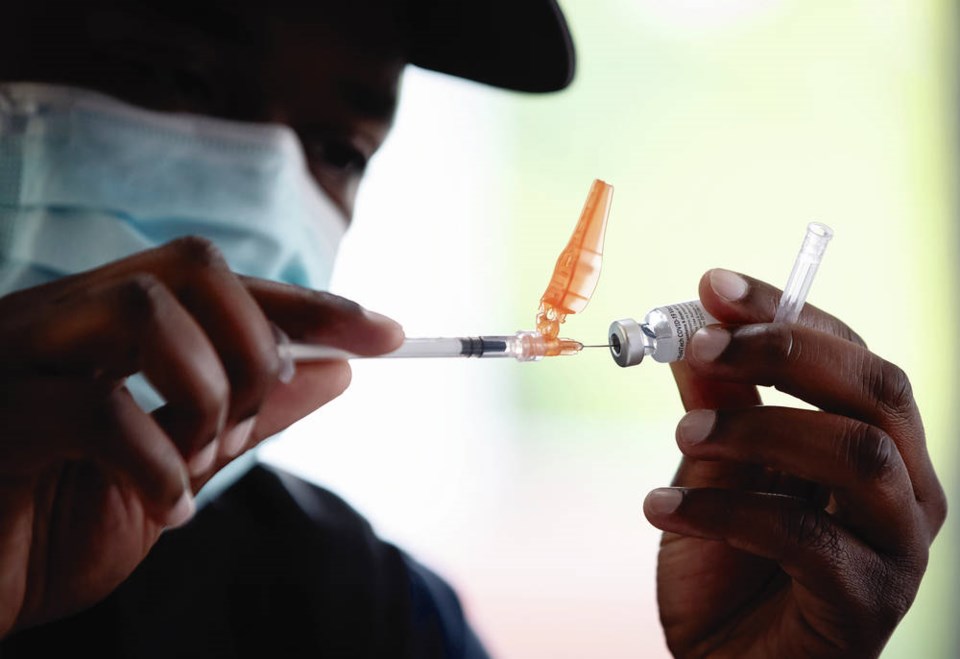This is the first of four editorials dealing with leading campaign issues as we get ready for the federal election on Sept. 20. For reasons of space, we are focusing primarily on the three main parties with broad national support.
Unavoidably, the No. 1 concern is what measures should be taken to deal with the fourth wave of COVID-19 now gathering speed.
The so-called Delta strain, already the fourth mutation to arrive after the original outbreak, is now the dominant variant in several countries. In B.C., 95 per cent of new cases are Delta.
Whatever policies are proposed must answer two questions.
First, how will these policies deal with this new fourth wave, and what happens if the virus continues to mutate? There is already evidence of a fifth, Lambda, variant in the U.S.
Second, how should a balance be struck between containing the virus, and avoiding a repeat shutdown of business sectors such as tourism and the hospitality industry?
The first of these questions is the more difficult to answer, because we really don’t know how the pandemic will evolve. What is clear is that the Delta variant is far more infectious than the preceding strains. But is it more lethal?
A study in Britain found that two doses of either the Pfizer-BioNTech vaccine or the AstraZeneca vaccine were between 92 and 96 per cent effective against the Delta variant. How long this immunity lasts is unclear.
If these figures stand up, the answer to the first question is that near-universal vaccination is essential. Where do the parties stand on that question?
The NDP position is straightforward. Party leader Jagmeet Singh has said: “At the end of the day if someone doesn’t get vaccinated in places where we know they can put people at risk … then they would not be able to continue working in those places.”
The Liberals have announced that all federal employees must be vaccinated, along with air and train passengers, but it’s unclear if they would extend this requirement into the private sector.
The Conservatives’ position is that they would not mandate vaccination, but would require unvaccinated civil servants to take daily COVID-19 rapid tests and demand rapid tests or proof of a recent negative test for air and train passengers.
What about the second question? Where does the correct balance lie between containing the outbreak, and keeping business doors open?
The Conservative platform is perhaps clearest on this issue. The party has pledged to wind down emergency support programs as vaccination rates improve.
There are also plans to bring spending under control and return the budget to a balanced position within 10 years. Limiting inflation and interest-rate increases are major talking points.
The Liberal platform is directed more at a continuation of various support programs. Fees for child care will be reduced by 50 per cent next year, and $6 billion will be committed to support reduction of health system waitlists.
And all federally regulated employees will be given 10 days’ sick leave. Nothing has been said so far about balancing the budget.
The NDP will establish a $20 minimum wage, “build toward” a guaranteed livable income for all Canadians, and hike the capital gains tax rate from 50 to 75 per cent. The budget will be balanced “when it is fiscally prudent to do so.”
It must be said that these are all snapshots. None of the parties has laid out a fully detailed platform yet. Nevertheless, a reasonably clear picture emerges. Both the Liberals and NDP propose tough vaccination rules, and a continued reliance on COVID support programs.
The Conservative plan steers away from compulsory vaccination, and begins a withdrawal from COVID relief efforts. The objective is to focus instead on the macroeconomic levers that guide the economy.
For what it’s worth at this point, the six-point margin the Liberals held over the Tories at the start of the election has shrunk to two points. The NDP have picked up two points.



